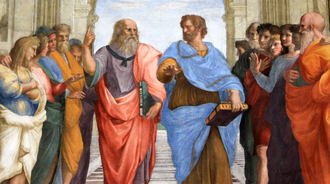WikipediaExtracts:Age of Enlightenment
Extracted from Wikipedia --
The Age of Enlightenment (also the Age of Reason) was a period in the history of Europe and Western civilization during which the Enlightenment, an intellectual and cultural movement, flourished, emerging in the late 17th century in Western Europe and reaching its peak in the 18th century, as its ideas spread more widely across Europe and into the European colonies, in the Americas and Oceania. Characterized by an emphasis on reason, empirical evidence, and the scientific method, the Enlightenment promoted ideals of individual liberty, religious tolerance, progress, and natural rights. Its thinkers advocated for constitutional government, the separation of church and state, and the application of rational principles to social and political reform.
The Enlightenment emerged from and built upon the Scientific Revolution of the 16th and 17th centuries, which had established new methods of empirical inquiry through the work of figures such as Galileo Galilei, Johannes Kepler, Francis Bacon, Pierre Gassendi, Christiaan Huygens and Isaac Newton. Philosophical foundations were laid by thinkers including René Descartes, Thomas Hobbes, Baruch Spinoza, and John Locke, whose ideas about reason, natural rights, and empirical knowledge became central to Enlightenment thought. The dating of the period of the beginning of the Enlightenment can be attributed to the publication of Descartes' Discourse on the Method in 1637, with his method of systematically disbelieving everything unless there was a well-founded reason for accepting it, and featuring his dictum, Cogito, ergo sum ('I think, therefore I am'). Others cite the publication of Newton's Principia Mathematica (1687) as the culmination of the Scientific Revolution and the beginning of the Enlightenment. European historians traditionally dated its beginning with the death of Louis XIV of France in 1715 and its end with the outbreak of the French Revolution in 1789. Many historians now date the end of the Enlightenment as the start of the 19th century, with the latest proposed year being the death of Immanuel Kant in 1804.
The movement was characterized by the widespread circulation of ideas through new institutions: scientific academies, literary salons, coffeehouses, Masonic lodges, and an expanding print culture of books, journals, and pamphlets. The ideas of the Enlightenment undermined the authority of the monarchy and religious officials and paved the way for the political revolutions of the 18th and 19th centuries. A variety of 19th-century movements, including liberalism, socialism, and neoclassicism, trace their intellectual heritage to the Enlightenment. The Enlightenment was marked by an increasing awareness of the relationship between the mind and the everyday media of the world, and by an emphasis on the scientific method and reductionism, along with increased questioning of religious dogma—an attitude captured by Kant's essay Answering the Question: What Is Enlightenment?, where the phrase sapere aude ('dare to know') can be found.
The central doctrines of the Enlightenment were individual liberty, representative government, the rule of law, and religious freedom, in contrast to an absolute monarchy or single party state and the religious persecution of faiths other than those formally established and often controlled outright by the State. By contrast, other intellectual currents included arguments in favour of anti-Christianity, Deism and Atheism, accompanied by demands for secular states, bans on religious education, suppression of monasteries, the suppression of the Jesuits, and the expulsion of religious orders. The Enlightenment also faced contemporary criticism, later termed the "Counter-Enlightenment" by Sir Isaiah Berlin, which defended traditional religious and political authorities against rationalist critique.
